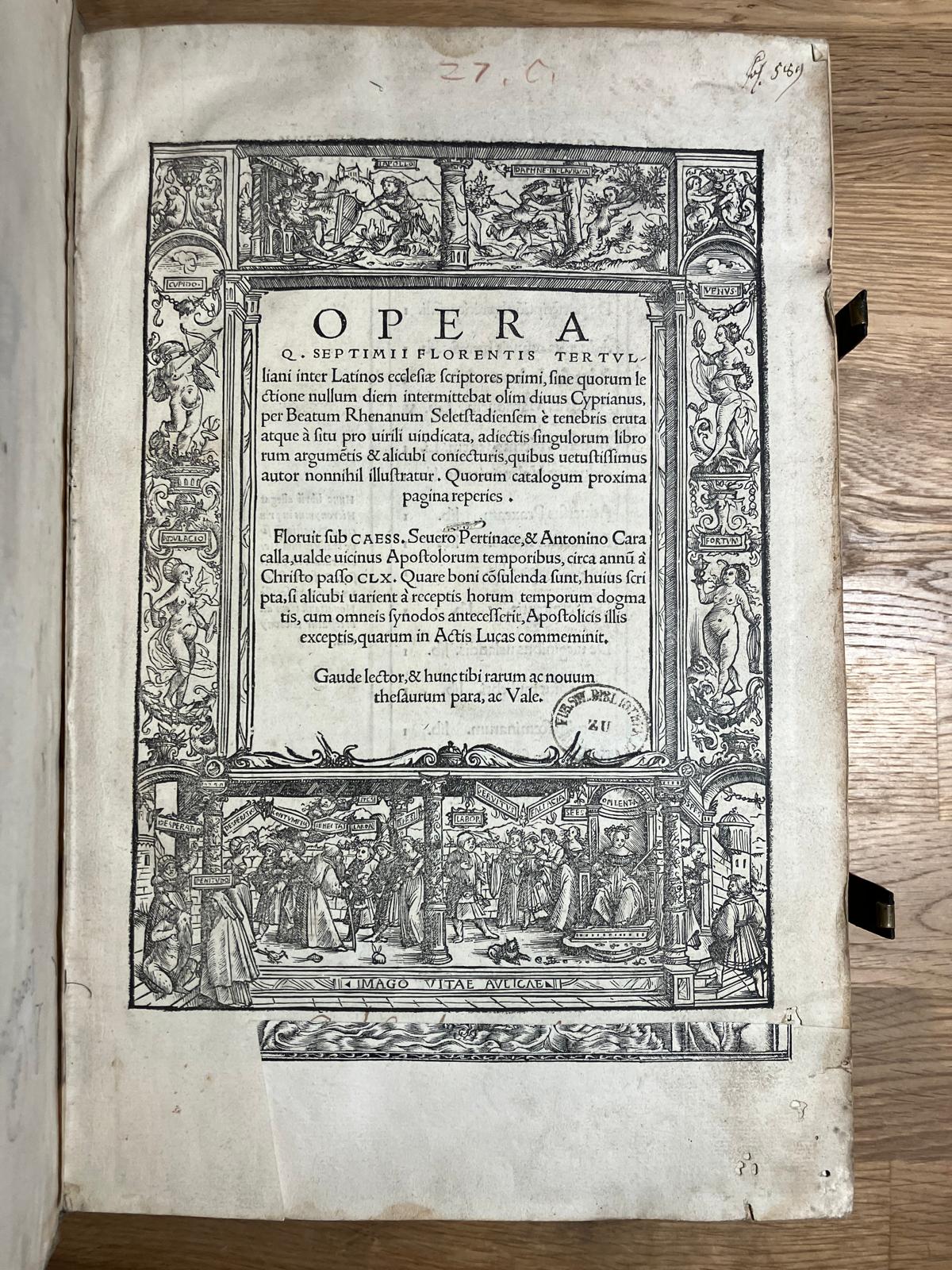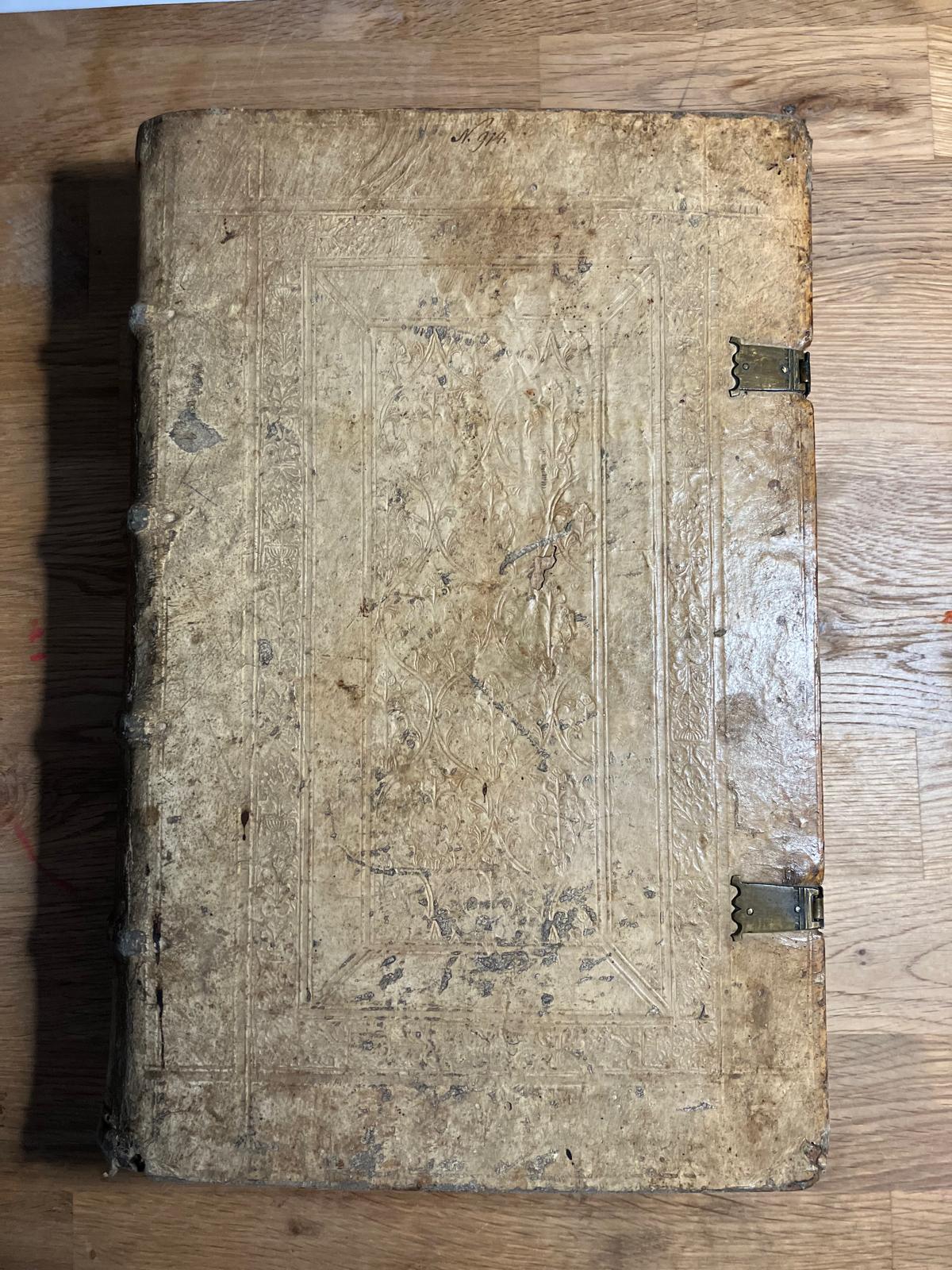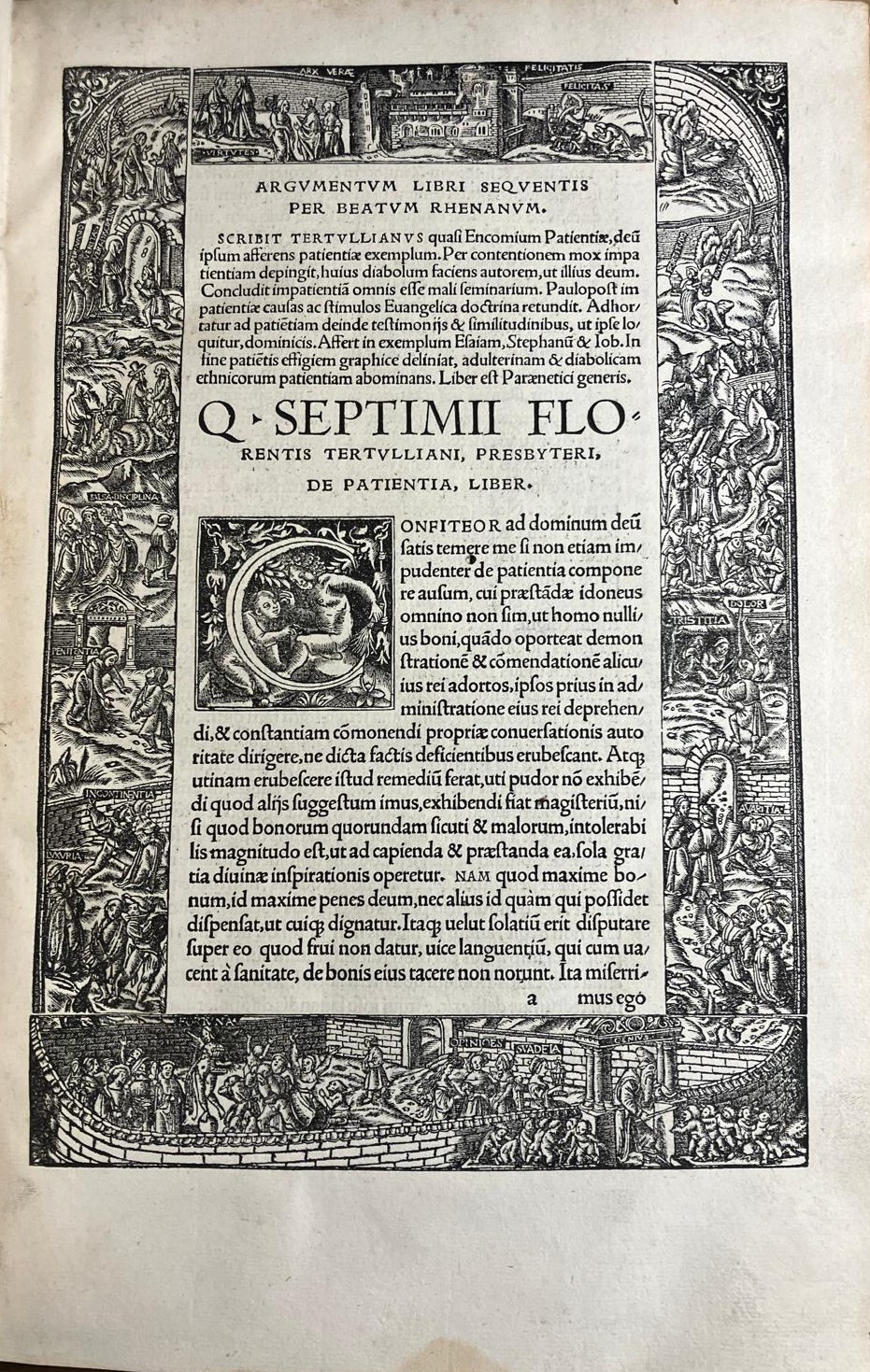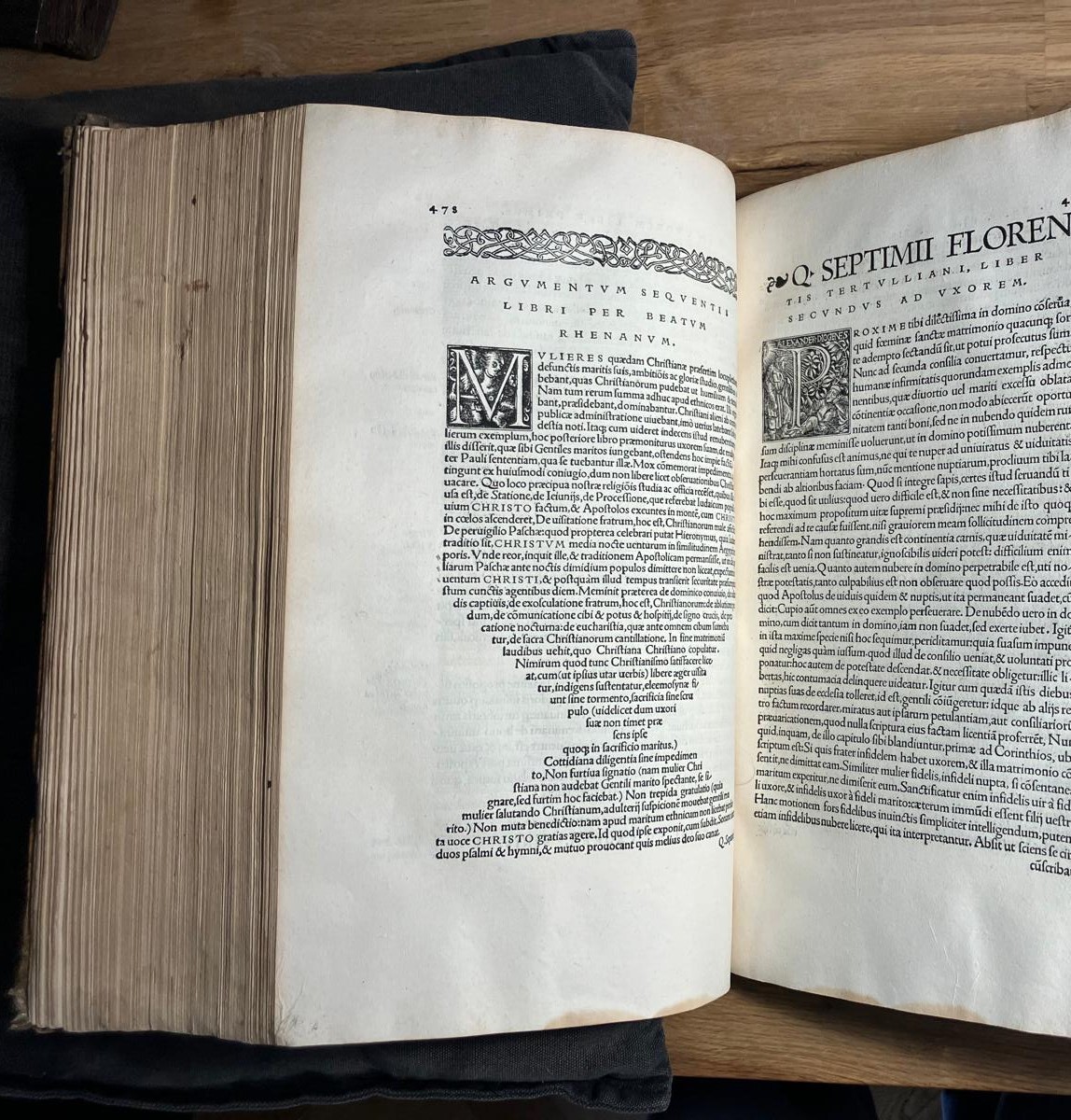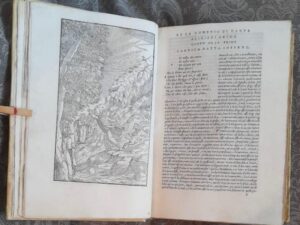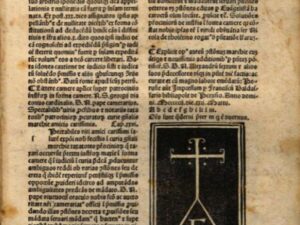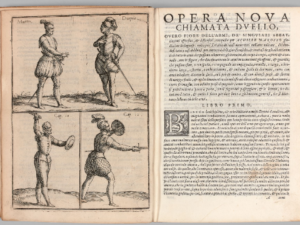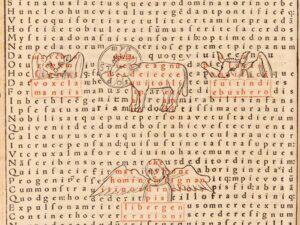Editio princeps, edited by the humanist Beatus Rhenanus of Selestadt and printed by Froben in Basel. It is considered the most sumptuous of the editions with fine engravings and broad margins, featuring the metal engravings attributed to Hans Holbein the Younger. “These engravings had been used in June 1518 to illustrate the edition of the Lives of the Caesars of Suetonius (and other authors), and represent the legend of Tantalus, king of Lydia who, admitted to the table of the gods, stole nectar and ambrosia in order to give them to mortal men. Then, to test divine prescience, he killed his own son Pelops and served his flesh to the gods at a banquet. Thrown into Tartarus, Tantalus was chained to a tree, heavy with fruit, in the middle of a limpid lake. Tormented by hunger and thirst, whenever he sought to drink the water level fell below his grasp, and when he reached for the fruit they lifted out of his reach (see lower figure). The figurines at the sides evoke the story of Pelops, cut into pieces by resuscitated by Zeus/Jupiter — represented here deliberating with Hermes/Mercury. Jupiter replaces the shoulder that Demeter/Ceres had eaten with a piece of ivory.” (Charles Munier).
Born in Carthage, Roman African province Quintus Septimius Florens Tertullianus was a distinguish thinker and, after his conversion to Christianity, a respected theologist. Called “the father of Latin Christianity“, as well as “the founder of Western theology” he was the first Latin author to use the term Trinity and develop the dogma.
This edition by Rhenanus was put at the Index by the Roman Catholic Church; first in that of Paul IV, in 1559, which condemned all the works of Rhenanus.
Works contained in the edition as mentioned in A1v
De Patientia. Liber I
De carne Christi. Lib. I
De resurrectione carnis. Lib. I
De praescriptione haereticorú. li. I
Aduersus omneis haereses.lib. I
Aduersus Iudaeos. Lib. I
Aduersus Marcionem Lib. V
Aduersus Hermogenem. Li. I
AduersusValentinianos. lib. I
Aduersus Praxeam. lib. I
De corona militis. lib. I
Ad Martyres. lib. I
De Poenitentia. lib. I
De uirginibus uelandis. lib. I
De habitu muliebri. Lib. I
De cultu foeminarum. lib. I
Ad uxorem suam. lib. II
De fuga in persecutione. Lib. I
Ad Scapulam. Lib. I
De exhortatione castitatis. lib. I
De Monogamia. lib. I
De Pallio. lib. I
Apologeticus aduersus gétes. I
Reference:
Adams T405; Graesse VI/II, 69.
Pierre PETITMENGIN, A propos du “Tertullien” de Beatus Rhenanus (1521): Comment on imprimait a Bâle au debut du seizième siecle, Annuaire de la societe des Amis de la Bibliotheque Humanistique de Sélestat (1980) pp.93-106.
François HEIM & James HIRSTEIN, Beatus Rhenanus (1485-1547): Lecteur et editeur des textes anciens. Actes du Colloque International tenu à Strasbourg et à Sélestat du 13 au 15 novembre 1998. Brepols (2000), ISBN 2-503-51120-1.Article by Charles Munier on the annotations of Rhenanus on the Tertullian editions, p.235ff. Article by Frédéric Chapot on how Rhenanus edited Adversus Hermogenem in his three editions, p.263ff.
Pierre PETITMENGIN, Tertullien entre la fin du XIIe et le début du XVIe siècle, in M. CORTESI (ed), Padri Greci e Latini a confronto: Atti del Convegno di studi della Società Internazionale per lo Studio del Medioevo Latino. Firenze: SISMEL (2004). pp. 63-88.

